A delegation of five members from FECoMo Kenya led a panel on tackling gendered disinformation in the digital age at the Digital Rights and Inclusion 2024 (DRIF24) conference in Accra, Ghana. Organized by the Paradigm Initiative, DRIF24 brought together delegates from 61 countries, representing governments, civil society, NGOs, activists, academia, the technical community, and the private sector. The conference, held on 23rd to 25th, April, served as a platform to address various issues related to digital inclusion and rights.
The panel on ‘Tackling Gendered Disinformation in the Digital Age,’ was moderated by Angela Minayo, a lawyer and Digital Rights Officer at ARTICLE 19 Eastern Africa. It featured experts from diverse backgrounds, including Muthuri Kathure from the Mozilla Foundation, John Okande from UNESCO, Miriam Beatrice from Paradigm Initiative, and Cherie Oyier from KICTANet.
The discussion centered on the gendered experiences of disinformation online, aligning closely with the conference theme of ‘Fostering Rights and Inclusion in the Digital Age.’ Panelists delved into strategies aimed at enhancing community resilience against harmful online content, with a specific focus on initiatives undertaken in Kenya.
Key Takeaways from the Panel Discussion
John Okande, UNESCO provided insights into the SocialMedia for Peace (SM4P) project in Kenya, highlighting efforts being made to promote peace online and combat harmful content. He shared UNESCO’s support for various FECoMo initiatives to design mechanisms that address harmful content on digital platforms. This includes the recent engagement for content creators and social media influencers, where over 25 participants were trained to use their influence and networks for digital peacebuildling.
Cherie Oyier, KICTANet shed light on the challenges faced by women online, including dismissal of their opinions, harassment, bullying, and body shaming. She said, ‘These issues undermine democracy and freedom of expression’. Cheryl further highlighted how offline misogynistic stereotypes are mirrored online, particularly in the African context. This underscored the lack of understanding and inclusion, which contributes to gendered disinformation.
Miriam Beatrice, Paradigm Initiative advocated for inclusive strategies to assist all categories of women regardless of their socio-economic status. She talked of the concept ‘Design with, not Design for’ which emphasizes the importance of involving women in the decision-making process as part of the workforce at every level of development. Miriam also highlighted interventions by Paradigm on tackling gendered misinformation. She said, ‘We developed a toolkit called Ayeta, which provides tips and measures against digital threats, we also have a reporting channel called Ripoti where digital violations can be reported and litigation support provided’.
On his part, Muthuri Kathure from Mozilla Foundation observed that despite the prevalence of outrageous content shared for engagement, women typically bear the brunt of the backlash. He called for punishment for perpetrators of gender-based violence and capacity-building for law enforcement and judicial officials to enable them to handle technology-facilitated gender-based violence (TFGBV).
The panel discussion at DRIF24 emphasized the urgent need for collective action to combat gendered disinformation online. With initiatives like the SM4P project and advocacy efforts by experts, there is growing momentum toward creating a safer digital space. By leveraging tools like ‘Ayeta’ and ‘Ripoti’ provided by Paradigm Initiative and fostering inclusive strategies, stakeholders can work towards a more secure and inclusive online environment for everyone. Through collaborative efforts and innovative solutions, we can empower change and build a digital future that prioritizes rights and inclusion for all.
 Afrikaans
Afrikaans Shqip
Shqip አማርኛ
አማርኛ العربية
العربية Հայերեն
Հայերեն Azərbaycan dili
Azərbaycan dili Euskara
Euskara Беларуская мова
Беларуская мова বাংলা
বাংলা Bosanski
Bosanski Български
Български Català
Català Cebuano
Cebuano Chichewa
Chichewa 简体中文
简体中文 繁體中文
繁體中文 Corsu
Corsu Hrvatski
Hrvatski Čeština
Čeština Dansk
Dansk Nederlands
Nederlands English
English Esperanto
Esperanto Eesti
Eesti Filipino
Filipino Suomi
Suomi Français
Français Frysk
Frysk Galego
Galego ქართული
ქართული Deutsch
Deutsch Ελληνικά
Ελληνικά ગુજરાતી
ગુજરાતી Kreyol ayisyen
Kreyol ayisyen Harshen Hausa
Harshen Hausa Ōlelo Hawaiʻi
Ōlelo Hawaiʻi עִבְרִית
עִבְרִית हिन्दी
हिन्दी Hmong
Hmong Magyar
Magyar Íslenska
Íslenska Igbo
Igbo Bahasa Indonesia
Bahasa Indonesia Gaeilge
Gaeilge Italiano
Italiano 日本語
日本語 Basa Jawa
Basa Jawa ಕನ್ನಡ
ಕನ್ನಡ Қазақ тілі
Қазақ тілі ភាសាខ្មែរ
ភាសាខ្មែរ 한국어
한국어 كوردی
كوردی Кыргызча
Кыргызча ພາສາລາວ
ພາສາລາວ Latin
Latin Latviešu valoda
Latviešu valoda Lietuvių kalba
Lietuvių kalba Lëtzebuergesch
Lëtzebuergesch Македонски јазик
Македонски јазик Malagasy
Malagasy Bahasa Melayu
Bahasa Melayu മലയാളം
മലയാളം Maltese
Maltese Te Reo Māori
Te Reo Māori मराठी
मराठी Монгол
Монгол ဗမာစာ
ဗမာစာ नेपाली
नेपाली Norsk bokmål
Norsk bokmål پښتو
پښتو فارسی
فارسی Polski
Polski Português
Português ਪੰਜਾਬੀ
ਪੰਜਾਬੀ Română
Română Русский
Русский Samoan
Samoan Gàidhlig
Gàidhlig Српски језик
Српски језик Sesotho
Sesotho Shona
Shona سنڌي
سنڌي සිංහල
සිංහල Slovenčina
Slovenčina Slovenščina
Slovenščina Afsoomaali
Afsoomaali Español
Español Basa Sunda
Basa Sunda Kiswahili
Kiswahili Svenska
Svenska Тоҷикӣ
Тоҷикӣ தமிழ்
தமிழ் తెలుగు
తెలుగు ไทย
ไทย Türkçe
Türkçe Українська
Українська اردو
اردو O‘zbekcha
O‘zbekcha Tiếng Việt
Tiếng Việt Cymraeg
Cymraeg isiXhosa
isiXhosa יידיש
יידיש Yorùbá
Yorùbá Zulu
Zulu


